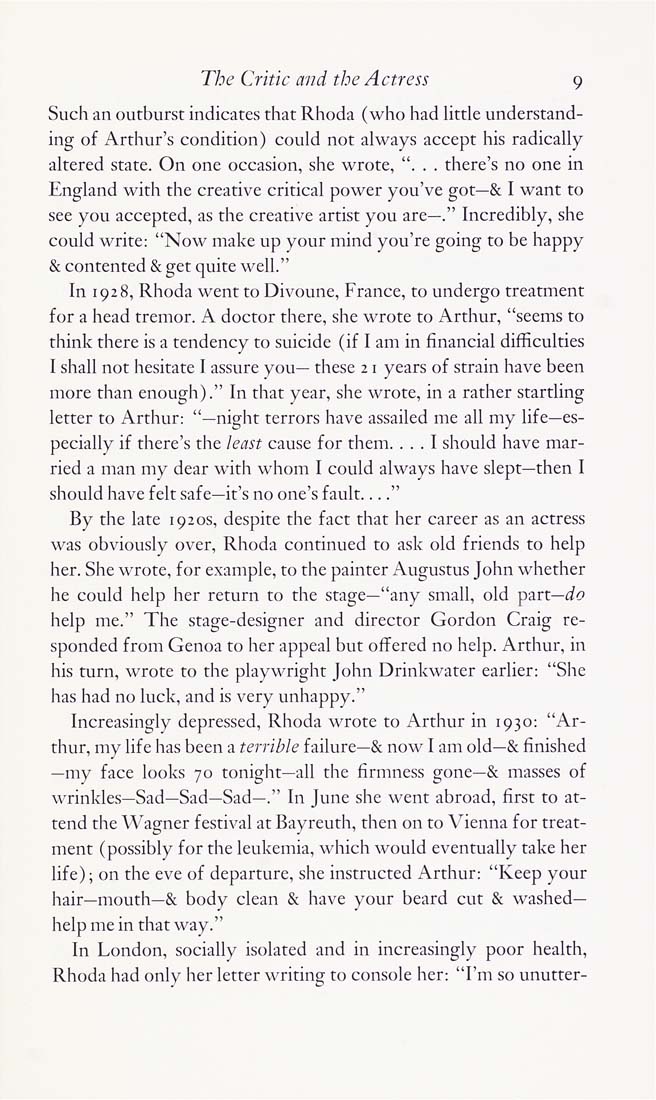Columbia Library columns (v.33(1983Nov-1984May))
(New York : Friends of the Columbia Libraries. )
|
||
|
|
|
|
| v.33,no.1(1983:Nov): Page 9 |

The Critic and the Actress 9 Such an outburst indicates that Rhoda (who had little understand¬ ing of Arthur's condition) could not always accept his radically altered state. On one occasion, she wrote, ". . . there's no one in England with the creative critical power you've got—& I want to see you accepted, as the creative artist you are—." Incredibly, she could write: "Now make up your mind you're going to be happy & contented & get quite well." In 1928, Rhoda went to Divoune, France, to undergo treatment for a head tremor. A doctor there, she wrote to Arthur, "seems to think there is a tendency to suicide (if I am in financial difficulties I shall not hesitate I assure you— tliese 2 i years of strain have been more than enough)." In that year, she wrote, in a rather startling letter to Arthur: "—night terrors have assailed me all my life—es¬ pecially if there's the least cause for them. ... 1 should have mar¬ ried a man my dear with whom I could always have slept—then I should have felt safe—it's no one's fault...." By the late 1920s, despite the fact that her career as an actress was obviously over, Rhoda continued to ask old friends to help her. She wrote, for example, to the painter Augustus John whether he could help her return to the stage—"any small, old part—rfo help me." The stage-designer and director Gordon Craig re¬ sponded from Genoa to her appeal but offered no help. Arthur, in his turn, wrote to the playwright John Drinkwater earlier: "She has had no luck, and is very unliappy." Increasingly depressed, Rhoda wrote to Atthur in 1930: "Ar¬ thur, my life has been a terrible failure—& now 1 am old—& finished —my face looks 70 tonight—all the firmness gone—& masses of wrinkles—Sad—Sad—Sad—." In June she went abroad, first to at¬ tend the Wagner festival at Bayreuth, then on to \^ienna for treat¬ ment (possibly for the leukemia, which would eventually take her life); on the eve of departure, she instructed Arthur: "Keep your hair—mouth—& body clean & have your beard cut & washed— help me in that way." In London, socially isolated and in increasingly poor health, Rhoda had only her letter writing to console her: "I'm so unutter- |
| v.33,no.1(1983:Nov): Page 9 |







